第69章 DAVY GOES TO CAHOKIA(4)
Therefore (suiting the action to the word) they stamped on the bloody belt, and rent in pieces the emblems of the White King across the water.So said the interpreters, as the chiefs one after another tore the miniature British flags which had been given them into bits.
On the evening of the third day the White Chief rose in his chair, gazing haughtily about him.There was a deep silence.
``Tell your chiefs,'' he said, ``tell your chiefs that to-morrow I will give them an answer.And upon the manner in which they receive that answer depends the fate of your nations.Good night.''
They rose and, thronging around him, sought to take his hand.But Clark turned from them.
``Peace is not yet come,'' he said sternly.``It is time to take the hand when the heart is given with it.''
A feathered headsman of one of the tribes gave back with dignity and spoke.
``It is well said by the Great Chief of the Pale Faces,''
he answered; ``these in truth are not the words of a man with a double tongue.''
So they sought their quarters for the night, and suspense hung breathless over the village.
There were many callers at the stone house that evening,--Spanish officers, Creole gentlemen, an English Canadian trader or two.With my elbow on the sill of the open window I watched them awhile, listening with a boy's eagerness to what they had to say of the day's doings.
They disputed amongst themselves in various degrees of English as to the manner of treating the red man,--now gesticulating, now threatening, now seizing a rolled parchment treaty from the table.Clark sat alone, a little apart, silent save a word now and then in a low tone to Monsieur Gratiot or Captain Bowman.Here was an odd assortment of the races which had overrun the new world.
At intervals some disputant would pause in his talk to kill a mosquito or fight away a moth or a June-bug, but presently the argument reached such a pitch that the mosquitoes fed undisturbed.
``You have done much, sir,'' said the Spanish commandant of St.Louis, ``but the savage, he will never be content without present.He will never be won without present.''
Clark was one of those men who are perforce listened to when they begin to speak.
``Captain de Leyba,'' said he, ``I know not what may be the present policy of his Spanish Majesty with McGillivray and his Creeks in the south, but this I do believe,''
and he brought down his fist among the papers, ``that the old French and Spanish treaties were right in principle.
Here are copies of the English treaties that I have secured, and in them thousands of sovereigns have been thrown away.They are so much waste paper.Gentlemen, the Indians are children.If you give them presents, they believe you to be afraid of them.I will deal with them without presents; and if I had the gold of the Bank of England stored in the garrison there, they should not touch a piece of it.''
But Captain de Leyba, incredulous, raised his eyebrows and shrugged.
``Por Dios,'' he cried, ``whoever hear of one man and fifty militia subduing the northern tribes without a piastre?''
After a while the Colonel called me in, and sent me speeding across the little river with a note to a certain Mr.Brady, whose house was not far away.Like many another citizen of Cahokia, Mr.Brady was terror-ridden.
A party of young Puan bucks had decreed it to be their pleasure to encamp in Mr.Brady's yard, to peer through the shutters into Mr.Brady's house, to enjoy themselves by annoying Mr.Brady's family and others as much as possible.During the Indian occupation of Cahokia this band had gained a well-deserved reputation for mischief;and chief among them was the North Wind himself, whom I had done the honor to kick in the stomach.